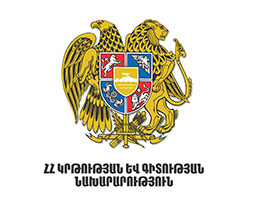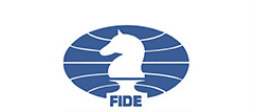
 ChessAcademy.am
ChessAcademy.am
Government Decision on Chess Inclusion in the Primary School Curriculum:
For download click here.
Main Goals, Problems and Expected Results

Since 2011 chess has been included in secondary schools of Armenia as a compulsory subject. Chess inclusion gives the chance to children to develop their intellectual abilities and contributes to their comprehensive development. The main goal of the program is to create and develop the intellectual abilities of elementary school pupils such as attention, diligence, memory, willpower, determination and patience. The expected result of the CIS program is to develop the intellectual capacity of the younger pupils, which will facilitate easier understanding of other subjects, as well as to identify children with chess talent. There emerges an important question: how did we come to the idea to include chess in the elementary school curriculum? We can find the appropriate answer to this very important question examining chess’ educational role and meaning.
Teaching of chess in primary schools has great educational potential that is due to the following features:
- chess helps pupils develop logical thinking,
- chess develops and improves learner's imagination, analytical capacity, thus effectively contributing to the study of other subjects,
- playing chess leads to hard work and to goal achievement, which contributes to the formation of the pupil's spiritual character,
- chess contains science, art and sports elements and develops pupil’s abilities to achieve success through its own hard work,
- chess develops the pupil’s taste in art, beauty perception and evaluation capacity,
- in terms of sports, chess develops the pupil's moral sportsmanship qualities, to fight to the end, to be objective, as well as the ability to lose with dignity,
- chess also improves pupil’s self-expression and the ability of capacity building in complex situations.
Due to all the above mentioned characteristics chess gains a unique educational significance and presents a need to be included in the elementary school curriculum.
Chess also has educational goals to help pupils:
- formulate and develop pupils' intellectual abilities,
- shape and develop pupils' self-organization and self-activity,
- develop the pupils’ attention, imagination, willpower, diligence, perseverance, patience,
- develop pupils’ memory,
- identify children with talent of chess.
As a mandatory component of general education, chess has the main principles of teaching, that play the role of a guide for teachers, to provide with knowledge of chess children with as weak, medium as well as strong learning abilities, according to the standard curriculum.
Thus, the basic principles of chess teaching are:
- ensuring access for each pupil,
- active participation of pupils to the learning process,
- practical orientation of chess teaching.
According to the criteria established by the Ministry of Education and Science, the students are divided into 3 groups according to the principle of learning layer classification. Accordingly, chess should guarantee the A, B and C groups of pupils proper training, resulting in minimum, medium and high level of knowledge for all pupils in elementary schools.
Thanks to the effective teaching of chess the learner should:
- recognize and value the role of chess to develop imagination, logical thinking, volitional qualities, as well as to support the formation and development of the capacity to make decisions in difficult situations,
- assess the fairness and honesty,
- pay attention to attentive and focused work,
- realize the importance of collaborative work,
- realize the importance of chess for the study of other subjects,
- be interested in chess, find aesthetic values in chess, have a sense of delight in solving problems,
- have confidence in his/her own capacities,
- realize the importance of chess in the research activities as well as for the development of intuition,
- and realize the importance of chess knowledge and make reasoned decisions.
In summing up the chess educational purposes, main principles and features of the "Chess in Schools" program, we have to emphasize that this program has become a reality thanks to the dedicated work of individuals who adopted this concept as a guideline and contributed throughout their professional abilities to the development and implementation of it.




